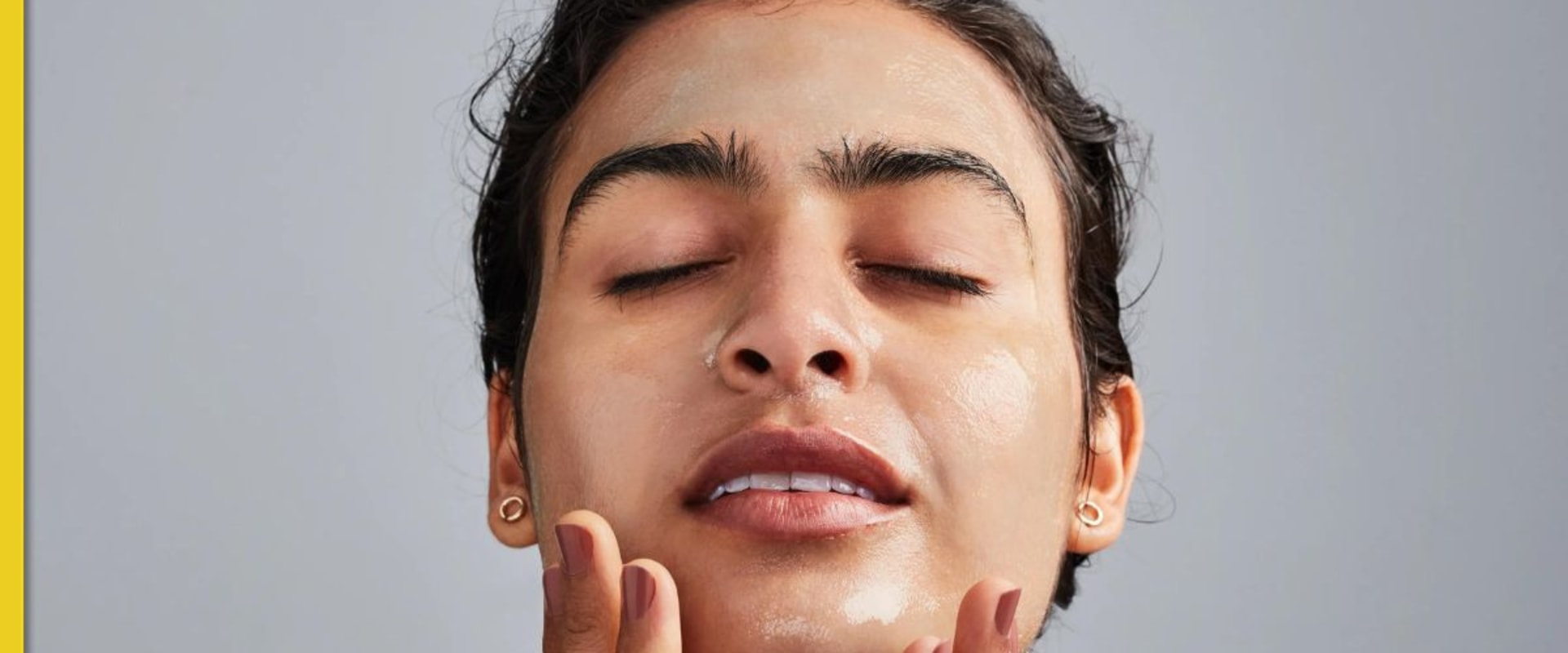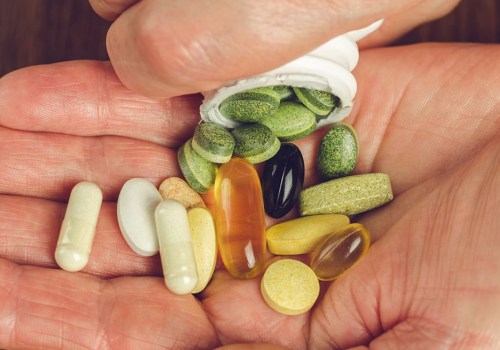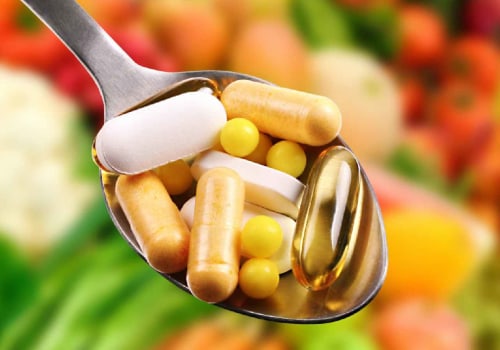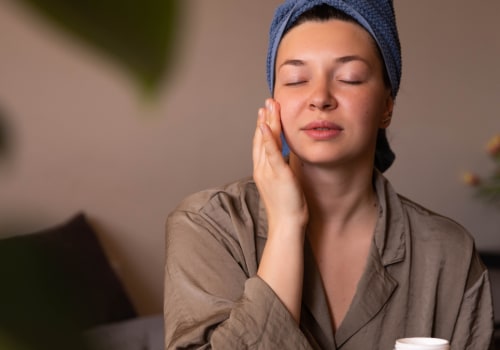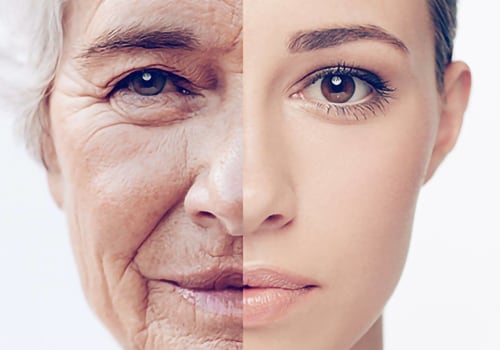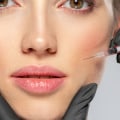Vitamin C does more than boost your immune system. Vitamin K (Fitonadione) prevents dark bags under the eyes. The vitamin B complex (biotin and niacin) gives it a vibrant look. If you were taking just one anti-aging supplement, collagen is the best option.
Collagen is the king of anti-aging, which is why many youthful rejuvenation treatments focus on renewing or revitalizing collagen production in the body, but you can start this process without needles, simply by adding collagen to your diet. Collagen is a protein that helps maintain the skin and, as we age, we produce less quantity, which causes wrinkles and sagging. It is believed that collagen production begins to decline as early as the early twenties. However, when our body starts to decrease collagen production, we can ensure that our levels stay high by supplementing it.
Collagen supplements have been shown to improve skin elasticity and reduce wrinkles. A 12-week study with 72 women showed that regularly taking a supplement containing 2.5 grams of collagen (along with several other ingredients) significantly improved the appearance of skin elasticity and smoothness. If you choose an anti-aging supplement, choose collagen. But why would you choose just one when so many others do almost as good a job? In addition to taking vitamin supplements, you can incorporate vitamin A into your diet by eating beef liver, eggs, tomatoes, peppers, spinach, and carrots.
Vitamin A is the strongest argument for why you should move on after taking collagen supplements. This powerful vitamin prevents and delays the effects of aging both indoors and outdoors. Vitamin A is also known as retinol, which is the key ingredient in many anti-aging supplements and serums. Vitamin A is not naturally produced by our body, which means that it must be consumed by eating foods rich in it or taking it as a supplement.
And there are plenty of reasons to do so, because vitamin A is the gold standard when it comes to anti-aging. Tretinoin, which is derived from vitamin A, has been shown to increase collagen production and reduce wrinkles. It does this by interfering with the enzymes that break down collagen in the skin's dermal layer and instead promotes the creation of new collagen. Vitamin A not only helps the skin, but it also helps the inside.
It promotes better vision and a stronger immune system, and helps the heart and lungs work properly. Your insides also age, but you can slow down the process with the help of vitamin A. Getting vitamin D from sun exposure on your skin is one option. Foods with vitamin D include fortified milk, salmon, tuna, and soy.
Vitamin D is known as the sunshine vitamin, since one of the ways we synthesize it is from exposure to sunlight. But vitamin D is also a powerful anti-aging vitamin, which is prolonged with longevity and a possible reduction in diseases and ailments related to aging. Research has also shown that vitamin D is effective in preventing premature aging by protecting the skin from ultraviolet light, one of the most common causes of wrinkles and lines. Vitamin E is essential for health and is found in almonds, sunflower seeds, peanuts, asparagus, avocados, and mangoes.
As we age, our bodies need more vitamin E to stay healthy, as you would expect, since vitamin E plays an essential role in regulating our immune system. As one of the skin's first defense layers, vitamin E is naturally produced in our body, but the sun's rays quickly deplete it. This isn't good, since vitamin E is a powerful antioxidant that neutralizes free radicals, unstable atoms that damage cells and have been linked to aging. Vitamin E not only protects skin from wrinkles and fine lines, but it can also increase collagen production, accelerating cell regeneration and creating new skin growth.
Studies have shown that taking vitamin E by mouth as a supplement dramatically increases protection against collagen breakdown. Vitamin E is good for the body and skin. It has been shown to reduce the risk of heart disease and potentially protect against cognitive decline. You can get resveratrol from supplements or from red wine, peanuts, grapes, blueberries, blueberries, and dark chocolate.
You may have heard of collagen, vitamin A, and vitamin D before, but it's likely that resveratrol is new to you. But it's time to get to know this small and powerful antioxidant, because it's one of the most powerful weapons against aging. Resveratrol is responsible for giving grapes and raspberries their distinctive red color, and it also fights wrinkles and fine lines. While you can get enough resveratrol by making berries a staple of your diet, you can much more easily add it to your diet as a supplement.
Exposure to UV light, such as sunlight, is one of the main culprits of skin aging. But there's no need to stop enjoying the sun. Resveratrol has been found to protect the skin from premature aging caused by UV light. Resveratrol has also been found to increase life expectancy.
Not bad for such a dark vitamin. Dietary sources of zinc include oysters, whole grains, red meat, poultry, beans, nuts, crab, and lobster. Zinc is an essential trace element found in red blood cells and plays many important roles in the human body, but our bodies don't naturally produce zinc. Because of this, we need to get zinc through our diet or supplements.
We need zinc for many things, including protein synthesis, regulating our immune system, and healing wounds. But zinc is also a powerful ally in the fight against aging. Zinc deficiencies have been found to accelerate the aging process and significantly reduce the risk of age-related diseases and infections. Zinc also plays a key role in protecting against hair loss, an important part of aging for both men and women.
Since zinc plays an important role in hair tissue growth and repair, it's no surprise that studies have shown that taking zinc supplements can protect against hair loss. With so many benefits, it's worth adding zinc to your supplement routine. Most people know that collagen is not directly absorbed by the body. But collagen breaks down into amino acids that are absorbed by the body, and those amino acids can be used to make collagen in the body.
The idea, generally true, is that more amino acids of this type mean more collagen production. Collagen is also used in joints, it's not just for cosmetics. I forgot the most important ones: vitamin C and vitamin B3. A quick search shows that resveratrol was never referred to as a vitamin in the article. Of course, you could have quoted the offensive phrase, but then that would have diluted the vitriol.
In fact, it was known as a vitamin. The last sentence of the section on resveratrol reads: “Not bad for such an obscure vitamin. I know it's hard to see through all the ads. Vitamin D isn't a vitamin either, and contractions should have apostrophes.
Now it seems that there is something in grape seed extract that has positive age-related effects, but it's not just resveratrol. There seems to be something in grape seed extract that has positive age-related effects, but it's not just resveratrol. Basil seeds are very rich in minerals, especially zinc. I take only 1 teaspoon in a full glass of water.
Let it soak for approximately 5 - 10 minutes. But one herbalist recommends 2 tablespoons with a teaspoon of honey at night. And 2 tablespoons without honey in the oven. My dose also reduced hair loss.
How many of these nutrition articles will I see that claim that you can get vitamin A from things like carrots? These, like most plant sources, contain beta-carotene, a retinol precursor that most of the human race cannot convert to retinol. There are some examples of this in conventional nutrition where they state things like this, and it's just not true. The problem, I suppose, is that there are few incentives in the current research model to do studies that don't get you noticed, don't give you a scholarship, etc. So many (most?) Studies on anti-aging supplements can be funded by companies that sell overrated miracle cures.
Studies are often poor, skew results to show favorable results, are not tested, not replicated, and are small-scale (less than 100 people). They don't tell you how they recruit subjects, so they can choose the people most likely to get a positive result. Supplement companies aren't heavily regulated, so you often don't get what you think you're buying, in terms of purity, for example. A 500 mg tablet or capsule may have only half the amount, who checks?.
Vitamin K has been proven to make your skin look young, healthy and radiant. Vitamin K also helps nourish hair and nails to provide healthy, regulated growth. Everyone touts vitamin C for its ability to prevent colds and the flu, but this powerful antioxidant can also improve skin texture and appearance. Sometimes referred to as ascorbic acid, Dr.
Zeichner says it stimulates collagen production, which, in turn, can help reduce fine lines. Vitamin C is a powerful antioxidant that neutralizes free radical damage, prevents the production of abnormal pigmentation, and serves as an essential cofactor for healthy collagen production, he says. Think of vitamin C as an insurance policy on your sunscreen to prevent damage. Likewise, vitamin E can help maintain the skin barrier when ingested, protecting the body from irritants and excessive water loss.
Research suggests that older adults need more vitamin E than younger adults to maintain health during the aging process, so if you want to take an internal approach to healthy skin, it may help to make sure you're getting enough of this vitamin. Also known as CoQ10, this antioxidant compound that the body produces naturally to help convert food into energy, has some scientific studies that suggest it may help reduce wrinkles and improve skin texture, said Dr. A review published in the journal Frontiers in Physiology found that CoQ10 supplements can alleviate age-related problems, including increased oxidative stress, while a study published in BioJournals found that a daily CoQ10 supplement significantly reduces wrinkles and improves skin smoothness. Supplements can't replace a balanced diet, daily exercise, and SPF when it comes to protecting your skin.
And while supplements like curcumin, CoQ10, and vitamin C may offer age-promoting effects, they won't magically restore skin or take 10 years of life from your face overnight. The best way to promote longevity (and stay youthful for longer) is to take good care of yourself, keep stress at bay, and follow a skincare routine that works. The 12 Best Hobbies for Retired People. Vitamins are sometimes overlooked in the fight against aging compared to the wide variety of creams and serums, but research shows that vitamins are a key part of delaying the aging process.
.
